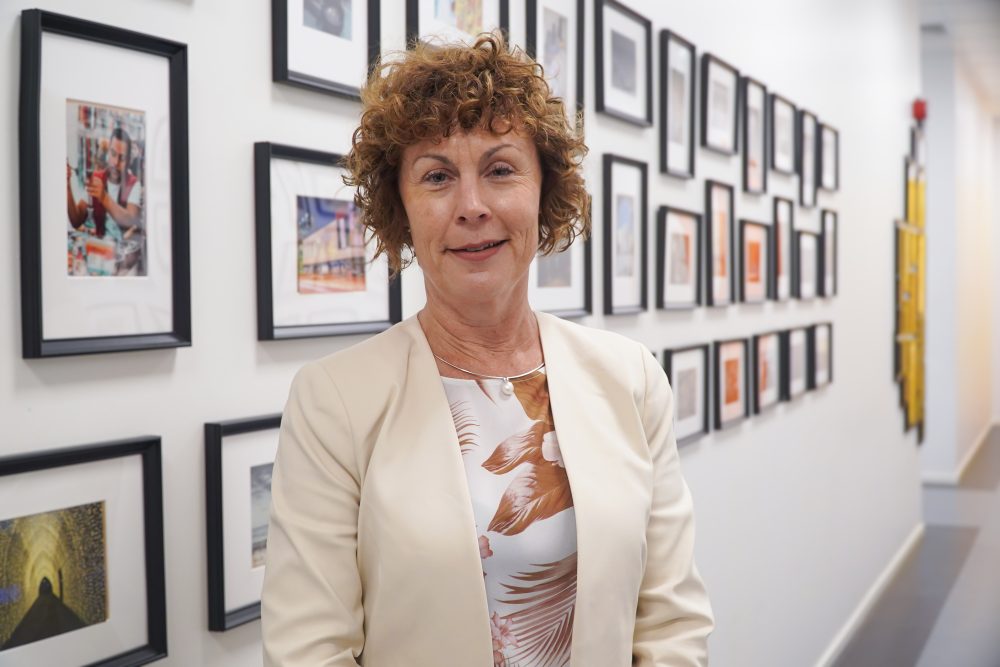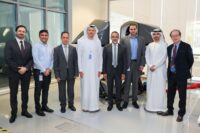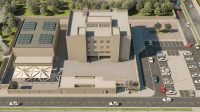Professor Melinda Fitzgerald, Deputy Vice-Chancellor – Research at Curtin University and CEO of Connectivity Traumatic Brain Injury Australia, is in Dubai for the 2nd International Conference on Innovation, Sustainability and Applied Sciences. She discusses the changing research landscape in the region, funding challenges and the rising impact of women in the field
Prof. Melinda Fitzgerald, Deputy Vice-Chancellor, Research at Curtin University and CEO of Connectivity Traumatic Brain Injury Australia, recently visited Dubai to attend the 2nd International Conference on Innovation, Sustainability and Applied Sciences (ICISAS), organised by Curtin University Dubai. As a John Curtin Distinguished Professor and a leading voice in neurotrauma research, Prof. Fitzgerald is deeply committed to promoting interdisciplinary research, building global partnerships and championing equity in research.
While in Dubai for the high-profile summit, where 271 research papers were selected for presentation across 27 sessions, Prof. Fitzgerald spoke to Education Middle East about the evolving research landscape in the GCC, the critical role of funding in driving impactful research and Curtin University’s initiatives in sustainability, technology and graduate employability. She also reflected on her own unconventional research journey (from leukemia to neuroscience), highlighting the critical importance of inclusive pathways in academia.
In this exclusive interview, Prof. Fitzgerald shares insights into the future of research, the challenges and opportunities within the GCC and the growing role of women in driving scientific excellence across the region.
We understand you are visiting Dubai for the 2nd International Conference on Innovation, Sustainability, and Applied Sciences (ICISAS), organised by Curtin University Dubai. Could you tell us more about ICISAS and its objectives?
The International Conference on Innovation, Sustainability and Applied Sciences is the flagship annual research conference organised by Curtin University Dubai. This multidisciplinary conference is dedicated to shaping the future by supporting researchers in driving innovation, sustainability and scientific excellence through interdisciplinary research and projects. Following the resounding success of our inaugural conference, ICISAS 2025 has drawn an even larger and more diverse group of experts from around the globe.
Over two days, attendees will experience a rich agenda that includes distinguished keynote sessions, plenary paper presentation sessions, panel discussions and networking opportunities. The conference aims to uncover groundbreaking research and foster collaboration across various disciplines, driving forward the frontiers of innovation and sustainability.
What are the highlights of ICISAS 2025?
The Zayed Foundation and the Dubai Police Academy have partnered with Curtin University to organise and host the high-profile conference on innovation and sustainability. An impressive 271 research papers will be presented across 27 sessions at the conference.
A major highlight will be the panel discussion focused on the impact of artificial intelligence (AI) on research. The discussion will explore how AI is enabling new scientific methods, driving efficiency in data analysis, and shaping the future of innovation in various academic fields. The panel will also discuss concerns around AI in research, including ethical issues and the challenges of reproducing results from AI-enabled research.
Taylor and Francis, Atlantis, Springer, MDPI and Inderscience Publishers will serve as key publication partners for the conference, ensuring that high-quality research presented at ICISAS 2025 is widely disseminated.
How many research paper submissions did you receive for the conference? Could you take us through the review process?
A total of 437 paper submissions were received from authors representing 36 countries. Each paper underwent a double-blind peer review process to ensure the quality and rigor of the research, with more than 900 global reviewers participating.
After review, 271 papers were accepted and officially registered for presentation at the conference.
What are Curtin University Dubai’s key research initiatives, and what is your long-term vision for the university’s research development?
At Curtin University Dubai, our present aim is to advance research in environmental sustainability and climate change actions, positioning the university as a pioneer in the Middle East in these critical areas. Our long-term vision is to foster global collaborations and create industry-relevant solutions that contribute to environmental, social and economic development, particularly in the Middle East.
Some of our key current research initiatives include Solar Energy Integration in Dubai’s Power Grid, Abrasive Waterjet Machining Technology, Graduate Employability and Subjective Well-Being in Organisational Policies.
The focus of ‘Solar Energy Integration in Dubai’s Power Grid’ is to maximise the integration of solar power into the UAE’s grid, addressing the technical and economic challenges associated with solar photovoltaic (PV) systems. Proposed innovations include developing cleaning robots, cooling units and utilising IoT and blockchain technologies to optimise solar power usage.
With ‘Abrasive Waterjet Machining Technology,’ the focus is on advanced manufacturing techniques using high-pressure water and abrasive particles for material cutting, with the development of mathematical models to predict cutting depth and optimise process parameters, widely applicable in industry for improving production efficiency.
The research on ‘Graduate Employability’ aims to address the evolving needs for work-ready graduates in a competitive, globalised market. The focus is on bridging the employability gap by promoting upskilling, reskilling and lifelong learning to meet the changing demands of employers in a dynamic work environment.
‘Subjective Well-Being in Organisational Policies’ focuses on the investigation of the role of happiness and subjective well-being in employee motivation and engagement. The key here is the exploration of the neuroscience of resilience and its impact on building high-performing and resilient teams, specifically within the context of the UAE.
How do you evaluate the current state of university research initiatives in the GCC? What opportunities and challenges do you see in the region?
University research initiatives in the GCC are evolving rapidly, particularly in sectors such as sustainability, energy and technology. There is a growing governmental and industry focus on areas such as renewable energy, artificial intelligence and smart cities, creating significant opportunities for universities to engage in cutting-edge, interdisciplinary research. Collaborations with non-GCC institutions and the private sector are becoming increasingly common, allowing for the exchange of knowledge and the translation of academic research into practical, market-ready solutions.
However, challenges remain, particularly in terms of research culture, infrastructure and talent retention. While research output is increasing, the region still faces gaps in resources, research facilities and long-term funding for fundamental research.
What are the sources of research funding for universities in the GCC? How does it compare with other advanced economies?
In the GCC, research funding for local universities primarily comes from government sources, which support research in areas such as renewable energy, technology and healthcare. Private sector collaborations, especially with industries like energy and technology, also contribute to applied research funding. While the GCC’s research funding is growing, it still lags behind other advanced economies in terms of the GDP percentage allocated to R&D. Other advanced economies tend to have more diverse funding sources, including greater private sector investment.
Could you tell us briefly about your journey in research? What have been some of the most defining moments?
I am a cell biologist, and my career focus is traumatic brain injury. I did not take a straight path to where I am today. My PhD was in leukemia research, and my post-doctoral research was in cardiac signaling and vascular biology. I then took an eight-year career break to care for my children when they were young, returning to research in a neuroscience team. A defining moment was being given the chance to learn neuroscience on the job and develop a fulfilling career both within my research field and in senior leadership at Curtin University.
What are your views on the role of women in research, particularly in the GCC? Are there specific initiatives or strategies that can further support and encourage female researchers in the region?
While historically women were underrepresented in both research and publications and often were not credited as authors even when making significant contributions to research, this has largely changed. While the ratios vary somewhat across disciplines, overall women are moving towards parity with men in publication and lead-authorship on publications. While the GCC has not yet reached that point, it is advancing strongly in that direction, with significant credit going to the GCC national universities providing research pathways to men and women on an equal basis. The greater number of women receiving PhDs and gaining employment in research-focused positions in the GCC will drive the GCC countries to parity with the other advanced economies in terms of research equity.
To learn more about ICISAS, visit https://conference.curtindubai.ac.ae/icisas-2025/ or click here to learn more about Curtin University Dubai.








